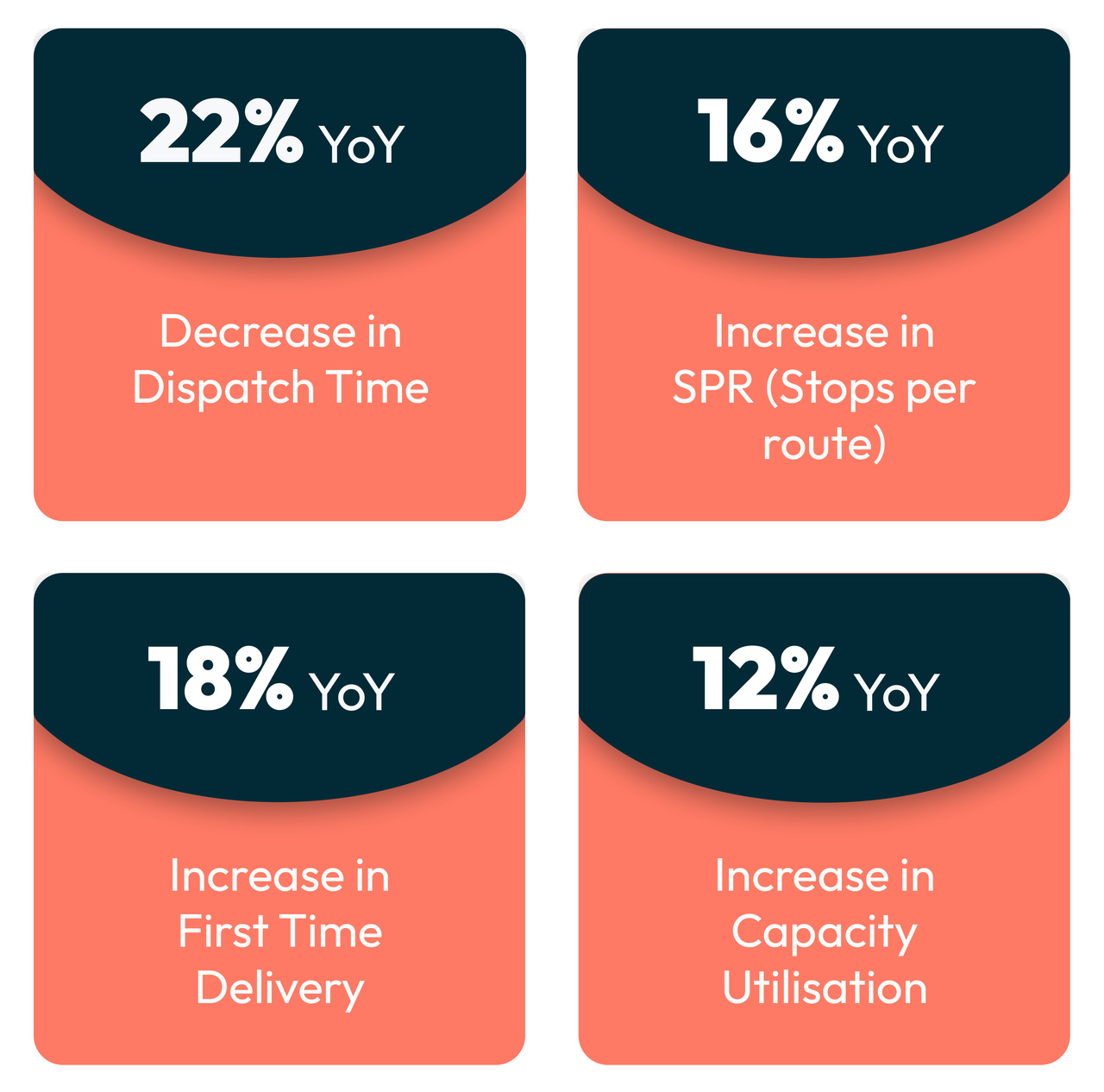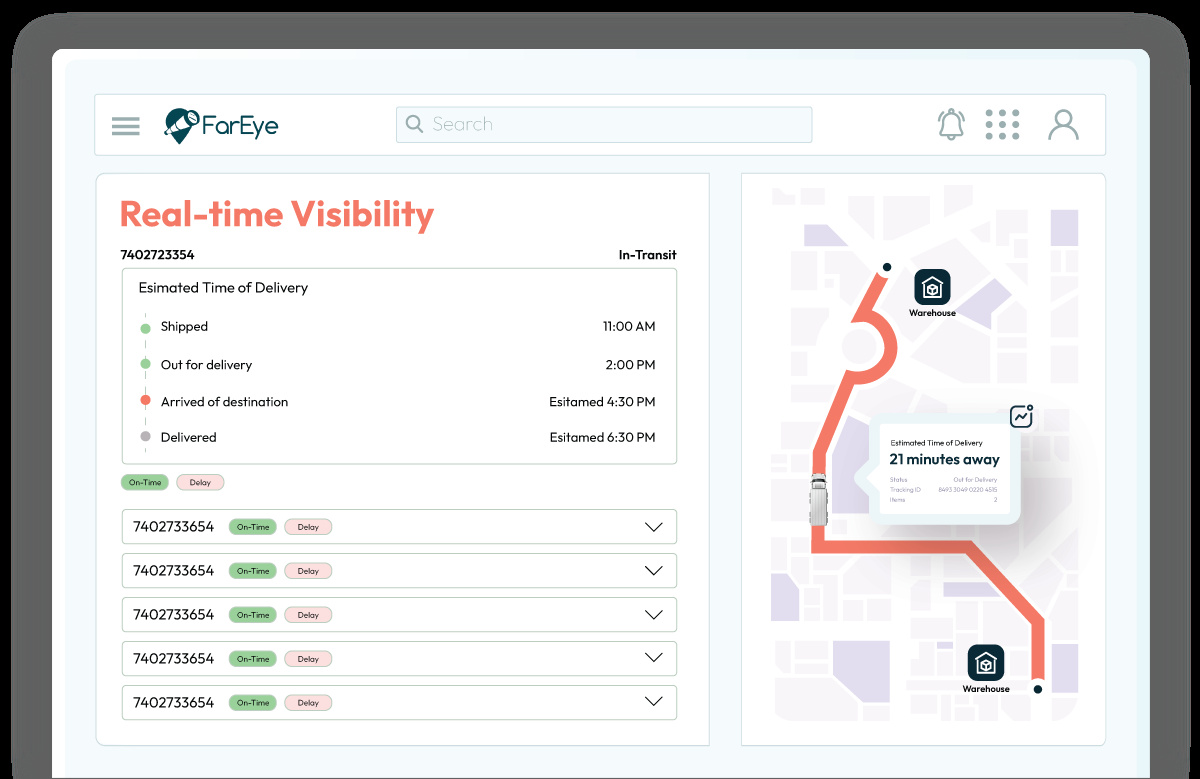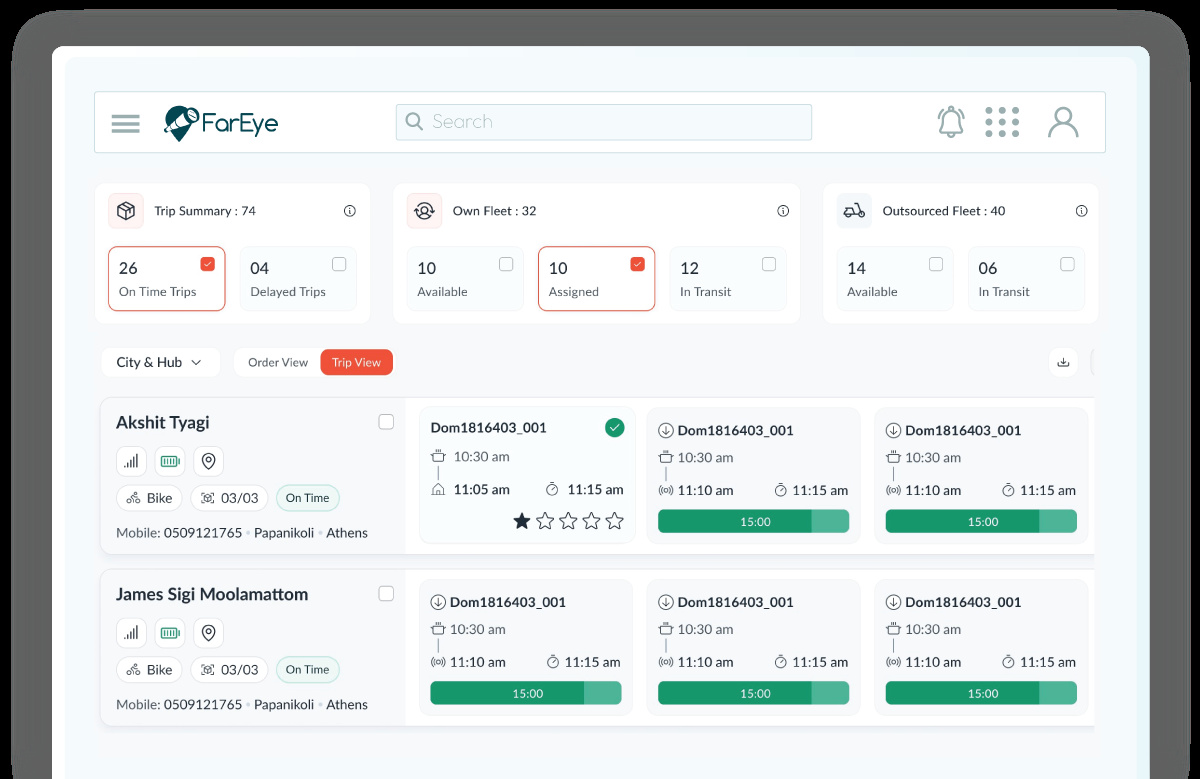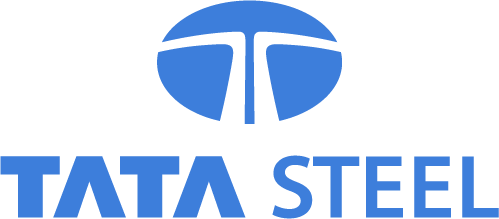
Route Planning Software
- Real-time dynamic route optimization
- Proprietary AI-powered routing algorithm
- Prioritize EV & green fleet
- Ensure compliance with transportation regulations



Route Planning Software to Reduce Delivery Cost and Improve Driver Utilization
FarEye’s route planning software allows businesses to manage deliveries for large order volumes and instantly generate optimized routes and schedules. The AI-based system factors several constraints such as driver schedules, vehicle capacities, time windows, and specific delivery requirements, and for multiple fleet types - owned/captive, hybrid and outsourced deliveries.
Built for enterprise scale, the route planning and optimization software connects to TMS, WMS, and carrier systems for one control tower. It also helps businesses factor committed delivery ETAs for scheduled deliveries and plan routes based on those SLAs to ensure on-time delivery and customer satisfaction. By reducing fuel consumption and leveraging EV routing, businesses can meet their sustainability goals.
FarEye’s route planning software helps generate optimized EV routes by factoring charging stations along the path to optimize fleet utilization.
Trusted by the world's top brands
Why Businesses Choose FarEye Route Optimization Software


Customized Routing Solutions, All-in-One Platform
Truck Routing
Plan long-haul or multi-day routes, factoring constraints like time windows, driver working hours(DoT compliance) and vehicle capacity. Enhance efficiency for LTL shipments with co-mingling of loads, optimizing load planning backed by freight cost calculations. Achieve cost effective deliveries for both LTL & FTL scenarios with ease.


Parcel (Same/Next-day) Routing
Ensure safe and timely delivery for same-day, next-day/overnight deliveries. Manage your sequencing of deliveries seamlessly by factoring in constraints that include time-slot based deliveries, territory-specific factors and delivery vehicle availability. Leverage FarEye’s differentiated capabilities like geofencing, loop optimization and EV routing for better efficiency and performance. Further, reduce cost of delivery by seamlessly integrating gig carriers into your fleet by leveraging rate-based routing.


Hyperlocal Route Planning
Improve fleet utilization, reduce driver miles and execute on-demand deliveries with ease using FarEye's hyperlocal routing. Leverage capabilities that include order broadcasting to nearby drivers and dynamic allocation to seamlessly achieve faster deliveries and equal driver pay. Achieve improved speed of deliveries while reducing costs.


Scheduled Routing For Big & Bulky Deliveries
Offer flexibility and convenience to your customers with real-time dynamic delivery time slots pre and post checkout. Offer time-slots by planning routes based on other confirmed orders, vehicle capacities and driver rosters to map drivers who can instantly assemble. Improve first-attempt delivery rates and reduce delivery costs by offering “Green Windows” for scheduled deliveries. Boost brand loyalty by elevating the customer experience, reducing anticipation and assembly anxiety.


Territory Planning
Leverage FarEye's Territory Planning capabilities to enhance delivery efficiency by analyzing past quarter / year’s historical data to define optimal service areas. Improve workload allocation, workload balancing among teams, and minimize travel distances. Achieve cost savings, improved delivery times, and streamlined operations, ensuring coverage and operational efficiency across territories.


Plug & Play Routing API
Plug and play our routing API with your existing systems and generate optimized routes instantly. Leverage our wide range of customizations that include - vehicle type, tolls, driver parameters - and optimize routes for specific needs. Send routing requests from your OMS/TMS and instantly fetch optimized routes through FarEye’s flexible routing API.
The FarEye Impact



Solve Key Challenges with FarEye



FAQs
What are the benefits of route planning software?
What industries use route planning software?
1. Courier, Express & Parcel (CEP) for high-volume, time-sensitive shipments
2. Trucking Companies managing large-scale freight operations
3. Retailers handling warehouse-to-store movement and home deliveries
4. eCommerce platforms offering quick, reliable home deliveries
5. Furniture & Appliance providers offering white-glove, two-person services
6. Food, Grocery, & Hyperlocal businesses executing same-day, on-demand deliveries
Our flexible architecture supports everything from precise scheduling to real-time tracking, helping enterprises streamline operations, reduce costs, and deliver superior customer experiences.






